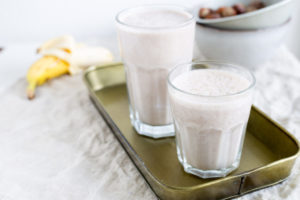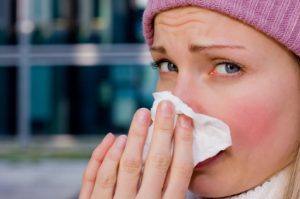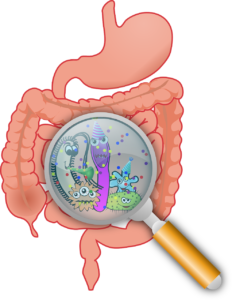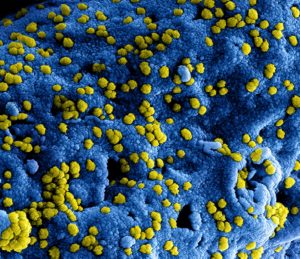Intolerance of Dairy is pretty common these days!
This means that many more people go dairy-free these days, compared to the days when animal milk was really the only kind of milk you could buy!
This could be because of an intolerance to cow’s milk or specifically an allergy to lactose. The discomfort could influence the decision to follow a vegan diet, or quite simply many want to reduce environmental impact?
Whatever the reason, there is a big demand, for non-dairy milk!
Now, what Dairy-Free Option?
When faced with a wide range of identical-looking containers to choose from, just what will your choice be?
Here we list 5 dairy-free options and what to look for when you decide.
Derived from grains and legumes, each type of milk alternative has its own benefits.
However, some milk may have hidden pitfalls, such as additives or the lack of essential nutrients.
With so many dairy-free options, how do you choose the right one for your needs?
To help you choose, keep reading about the most common dairy-free alternatives and how to see just what they contain!
5 Dairy-free options
When it comes to a dairy-free milk alternative (aka ‘mylk’), there are several popular types you will see on supermarket shelves.
Below are some of the benefits of each, to help you decide on the right option for you:
1. Oat: A source of blood sugar-balancing and gut health-promoting fibre.
2. Rice: A low allergen option with a mild taste.
3. Soy: High in protein. Soy has received bad press in the past saying that it increases oestrogen levels (not true!).
To learn what soy actually does, and how it can be of benefit, Contact us
4. Coconut: A creamier, more filling option. Coconut milk is rich in satiating and energy-stabilising good fats.
5. Almond: A well-balanced and tasty option. Almonds provide healthy proportions of protein, fibre, and fats.

Check what the Label Says
Once you have made up your mind about which type of milk you want, review the ingredient panel of each brand critically to ensure you are choosing the healthiest, most cost-effective and environmentally mindful option for you.
Things to look for include:
- Ingredient content
- Almond milk that contains 1% almonds will taste weaker and more watery than one containing 10% almonds.
As most non-dairy milk contain high water content, make sure you get value for money by choosing the option with the highest amount of the non-dairy base (e.g. nut, seed or grain) you can find.
- Almond milk that contains 1% almonds will taste weaker and more watery than one containing 10% almonds.
- Additives, Preservativatives, and Flavours
- Milk may contain additives to adjust its flavour, texture or thickness.
This includes food acids, gum, thickeners, mineral salts, stabilisers, and emulsifiers.
While several of these may be considered safe, others have unknown safety profiles.
Some additives are highly processed or artificial and may trigger inflammation.
They also need to be detoxified from the body, which means they could increase the burden on detoxifying organs such as the liver.
Rather than trying to see which additives are safe and which are not, the simplest option is to avoid products that contain additives altogether and stick to real food ingredients.
- Milk may contain additives to adjust its flavour, texture or thickness.
- Organic vs non-organic
- Some nuts and grains are exposed to a large number of herbicides and pesticides during farming, and low levels of exposure to these chemicals over a long period have been linked to serious diseases such as Parkinson’s disease and cancer.
Also, pesticides increase the burden on your detoxification systems, so choose an organic option to reduce your exposure.
- Some nuts and grains are exposed to a large number of herbicides and pesticides during farming, and low levels of exposure to these chemicals over a long period have been linked to serious diseases such as Parkinson’s disease and cancer.

- Sweeteners
- Many dairy-free milk alternatives often contain a sweetener (such as rice syrup), which is added sugar your body simply does not need.
Maintain control over your sugar intake by picking an unsweetened option.
- Many dairy-free milk alternatives often contain a sweetener (such as rice syrup), which is added sugar your body simply does not need.
- Fats
- Omega-6 fatty acids found in vegetable, nut and seed oils, are a common addition to packaged foods.
Dairy-free milk alternatives are no exception and can contain oils such as sunflower oil. Consuming too many omega-6 fats in relation to omega-3 fats (found in fish) can lead to inflammation and damage in the body.
As our diets are commonly deficient in omega-3 fats and too high in omega-6, it is best to avoid milk with added omega-6.
- Omega-6 fatty acids found in vegetable, nut and seed oils, are a common addition to packaged foods.
- Locality
- Nuts and grains are often grown overseas, creating a large amount of ‘food miles’ (and hence carbon emissions) before they reach your store.
As dairy milk is often locally sourced, look for that dairy-free alternative made from Australian-grown ingredients. This ensures that going dairy-free does not increase your environmental impact unnecessarily.
- Nuts and grains are often grown overseas, creating a large amount of ‘food miles’ (and hence carbon emissions) before they reach your store.
If milk does come with some or all of the above issues, I would recommend avoiding it.
If you can find an organic, unsweetened milk that contains 3 or 4 ingredients (e.g. water, almonds, oil and sea salt), then you’ve likely found a good option.
Dairy-Free = Delicious
By now you’ve selected your dairy-free milk alternative and checked the ingredient labels.
To start enjoying the taste and benefits, here is a smoothie recipe that also includes dairy-free protein powder and pea protein.
Protein powder is a fantastic addition to a smoothie, as it gives you a slow-release energy source and balances your blood sugar levels. This provides you with steady energy levels.
For more on the power of protein, contact us here.

Dreamy Dairy-Free Banana Smoothie
Serves 1
Ingredients:
- 1 frozen banana
- ½ tsp cinnamon
- 1 tsp honey
- 1 serve pea protein powder
- 1 cup dairy-free milk
- Ice (optional)
Method:
- Place all ingredients into a blender
- Blend together until combined
- Pour into a glass, top with extra cinnamon if desired
- Enjoy!
To Dairy or Not To Dairy?
Avoiding dairy has never been easier or tastier.
Some may be avoiding it due to an underlying issue in the body, such as poor digestive health, intolerance or allergy.
If you suffer from bloating, cramping, diarrhoea, or even skin issues that you think may be related to dairy, it may be worth seeing our Naturopaths to see why you’re reacting to it.
To get the Extra Guidance you need
Book here to speak with our Naturopath today!


 If you live with an allergic condition such as food allergy symptoms, food intolerance, hay fever, asthma, or eczema, and would like to use a natural allergy treatment program, then our Strategic Allergy and Reactivity treatment program is highly recommended.
If you live with an allergic condition such as food allergy symptoms, food intolerance, hay fever, asthma, or eczema, and would like to use a natural allergy treatment program, then our Strategic Allergy and Reactivity treatment program is highly recommended. 1) It addresses the root causes of your allergy and reactivity
1) It addresses the root causes of your allergy and reactivity
 Do you experience typical allergy symptoms such as bloating, cramping, diarrhoea, nausea, headache, migraine, itchy throat, mucus, eczema, skin rash, fatigue, itchy eyes?
Do you experience typical allergy symptoms such as bloating, cramping, diarrhoea, nausea, headache, migraine, itchy throat, mucus, eczema, skin rash, fatigue, itchy eyes?
 Inflammation within your digestive tract (where the majority of your immune system is found).
Inflammation within your digestive tract (where the majority of your immune system is found).
